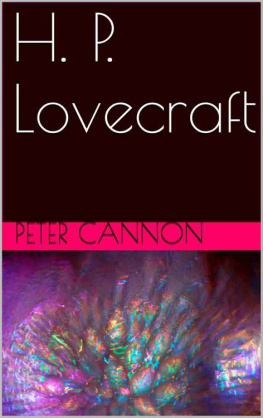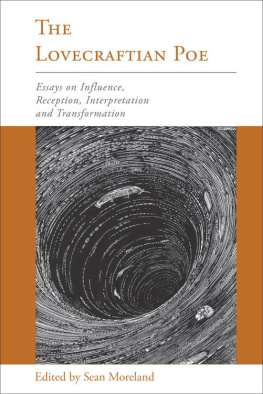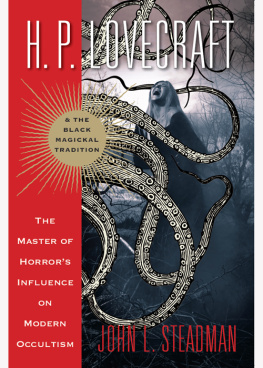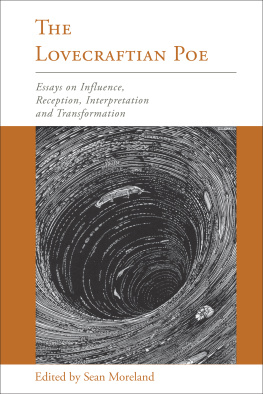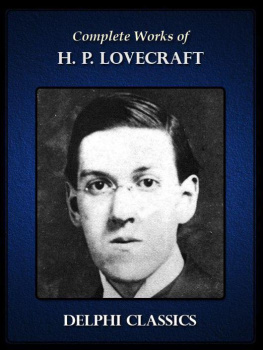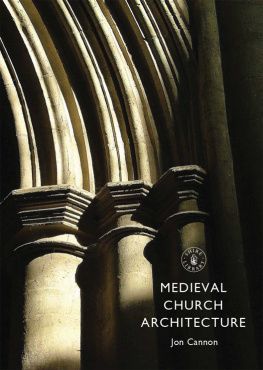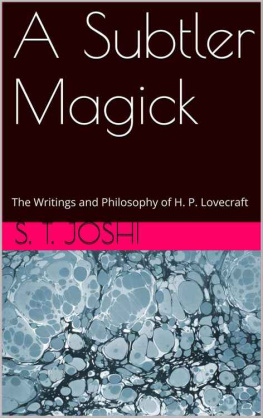H. P. Lovecraft
Peter Cannon
HippocampusPress
New York
Copyright 2016 by PeterCannon.
Revised and updated electronic edition 2016 by Hippocampus Press.
Originally published by Twayne Publishers, 1989(Twayne's United States Authors Series, No. 549).
Published by Hippocampus Press
P.O. Box 641, NewYork, NY 10156.
http://www.hippocampuspress.com
All rights reserved.
No part of this work may bereproduced in any form or by any means without the written permissionof the publisher.
HippocampusPress logo designed by Anastasia Damianakos.
FirstElectronic Edition, 2016
EditorsForeword
Oneof my earliest literary enthusiasms was for H. P. Lovecraft, whosebizarre tales I discovered in my teens when, bored with the blandromances of the SaturdayEvening Post of thedepression years and having exhausted Poe, I began to search outother American Gothic writers. I first read the reclusive gentlemanof Providence, Rhode Island, in WeirdTales, one of theluridly illustrated pulp magazines of the era,so-called because of the coarse paper on which the supposedlyperishable contents were crudely printed. My high school Englishteachers, who trafficked mostly in inspirational verse, were appalledby my taste. Like many cultural guardians, they considered Gothicfantasy (or supernatural horror, to use the termfavored by Lovecraft) a disreputable genre appealing only to theimmature and uncultivated. To give them their due, in this respectthey resembled our devout early settlers with their puritanicaldistrust of such time-wasting lies of the devil asimaginative fiction. I was fascinated, however, especially byLovecrafts intricate construction of the myth of Cthulhuarare enterprise in American lettersto allegorize his dismay atthe degeneration of his beloved New England.
Works that provide a glimpse of thenightmare world beneath the deceptive surface of the American dreamhave held a prominent place in our literature since Charles BrockdenBrowns Wieland (1798). The genre wouldfind its most celebrated practitioner in Edgar Allan Poe, who calledhis first story collection Tales of the Grotesqueand Arabesque (1840),and today it flourishes unflaggingly in both fiction and film. So,despite establishment disapproval, I remained devoted to Lovecraftthrough service in World War II and graduate school. When during the1960s I was asked to take over the reviewing of works about Americanfiction of the 1920s and 1930s for the new annual AmericanLiterary Scholarship, Iincluded a survey of Lovecraft scholarship at home and abroad. (Justas the French decadents and symbolists were the first to embrace Poein the nineteenth century, so have French critics been the first torecognize Lovecraft in our century.) And, when in the mid-1970s theprogram for the Twayne series was expanded, I urged that it shouldinclude an objective study of this neglected author.
In this volume, Peter Cannonscareful analysis of the individual tales shows how Lovecraftsart developed and ultimately transcended the boundaries of the genre.In honor of H. P. Lovecrafts centenary in 1990: we offer this to hisreaders with the hope that it will provoke a reexamination of hiscontribution to American literature and keep alive the question of his rightful placeamong this nations great imaginative artists.
WarrenFrench
Swansea,Wales
Preface
Ihave written this study with two audiences in mind, the believers andthe skeptics. Into the first group fall my fellow devotees ofLovecraft, many of them amateur scholars like myself, especiallythose who balance their obsessive interest in the man and his workwith a healthy dose of humor. I trust they will find some freshinsights here, besides coming away with a renewed sense of how ripethe gentleman from Providence remains for analysis. Into the secondcategory I put the nonfansincluding most Englishprofessorsthose who may think of Lovecraft as a second-rate,twentieth-century Poe but are open-minded enough to consider lookingpast the pulp surface of his fiction. I hope this studywill help persuade them that Lovecraft is more than a mere horrorwriter, that at the very least he deserves recognition as one ofAmericas greatest literary eccentrics.
After a biographical sketch in thefirst chapter I survey Lovecrafts otherworksthe amateur journalism, the travel pieces, theghost-writing, the letters, the poetryin order to place inperspective the tales that are necessarily the main focus of anyintroductory study. In chapter 2 I discuss the apprentice fiction ofthe late teens and early twenties chronologically by date ofcomposition within six thematic categories. Since setting, inparticular Lovecrafts native New England, became of suchparamount importance thereafter, I have elected to divide theremaining chapters geographically, though chapter 4forms a special case. While this arrangement has its awkwardnesses, Ibelieve it serves to illuminate the stories better than either arigidly chronological or thematic scheme. At the end of chapter 5, Icover his most significant piece of nonfiction, the long essaySupernatural Horror in Literature, while in the conclusion I examine current critical trends in Lovecraft studies.
In preparing this book I have beengrateful for the wealth of valuable critical material produced withinthe last few years. I have had the benefit as well of relying upon S.T. Joshis new, corrected printings of the Arkham Houseeditions of the tales. These four volumes and three other keycollections I have abbreviated in the text as follows:
CP Collected Poems(1963)
D Dagon (1986)
DD In Defence ofDagon (1985)
DH The DunwichHorror (1984)
HM The Horror inthe Museum (1989)
MM At theMountains of Madness (1985)
QS To Quebec andthe Stars (1976)
Quotationsfrom the five volumes of SelectedLetters also appearparenthetically in the text, designated by volume and page number. Ihave silently corrected obvious errors.
I wish to thank Arkham HousePublishers, Inc., for permission to quote from their editions of theworks of H. P. Lovecraft. Arkham Houses Jim Turner has beenespecially cooperative. I am also indebted to S. T. Joshi, SteveMariconda, and Frank Long for their readings of this study inmanuscript and for their general encouragement and advice; to WarrenFrench, Liz Traynor, and Barbara Sutton of G. K. Hall for theircollective editorial expertise; and to Alice Layton for herpsychological insights.
I dedicate this book to the memoryof Mr. Andrew Heyl, history and current events teacher, who thrilledan entire generation of children at the Brookwood School by readingaloudon class timegreat tales of terror and thesupernatural. I owe him thanks for introducing me to the fiction ofH. P. Lovecraft.
PeterCannon
NewYork City
Chronology
1890 Howard Phillips Lovecraft born 20 August at his maternalgrandparents house on Angell Street in Providence, RhodeIsland, the only child of Winfield Scott and Sarah Susan PhillipsLovecraft; family resides in Boston area.
1893 Father declared insane and committed to Butler Hospital inProvidence, where he dies in 1898; mother and son join Phillipshousehold.
18981908 Intermittent attendance at Providence public schools,private tutoring; nervous breakdown precludes graduation from highschool.
1904 Financial decline following death of grandfather Whipple V.Phillips; mother and son move to apartment on Angell Street.
1906 Astronomy column in the Pawtuxet Valley Gleaner. 19081913Period of seclusion at home; undertakes correspondence course inchemistry, later abandoned.
1912 First published verse, Providence in 2000 A.D. ,in Providence Evening Bulletin.

